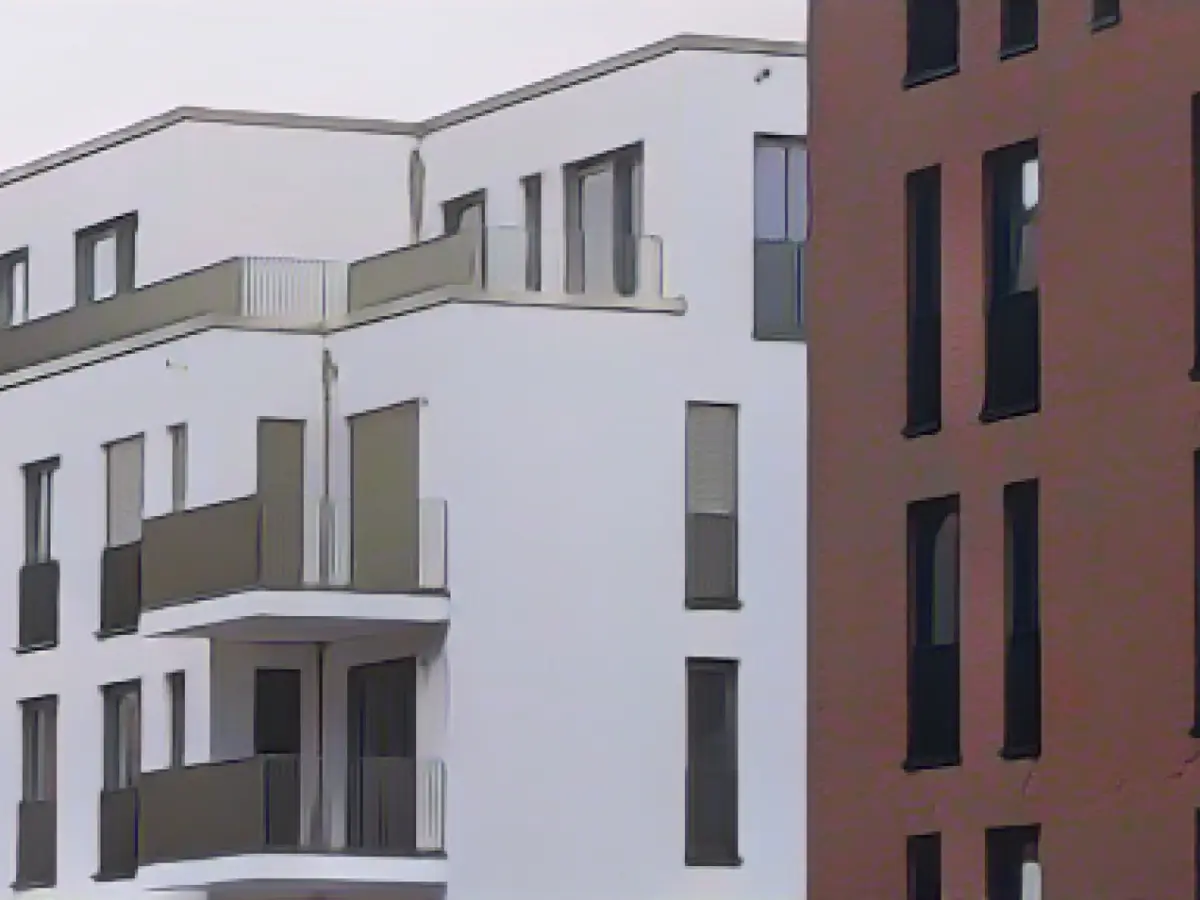Building - Trade unions and tenants' association call for housing offensive
After two years of government by the "traffic light" coalition, the German Trade Union Confederation (DGB) and the German Tenants' Association have drawn a gloomy balance sheet on housing policy. In Berlin, they called on the federal and state governments to launch a billion-euro housing offensive. Around a third of the 21 million tenant households in Germany are currently overburdened by their housing costs.
DGB board member Stefan Körzell attested to "two years of federal political despondency" in construction policy. The President of the German Tenants' Association, Lukas Siebenkotten, demanded: "There needs to be a bang, actually a double or triple bang, so that this important issue of affordable housing for all is finally tackled sensibly."
Körzell called for the federal and state governments to invest around 13 billion euros a year in a national housing campaign. Local authorities should be strengthened and profits made from real estate trading should be siphoned off.
Hundreds of thousands of apartments are missing
"The coalition agreement stated that 400,000 apartments were to be created each year, 100,000 of which were to be publicly subsidized," said Siebenkotten. "Less than 300,000 were actually created," he said, referring to the years 2021 and 2022, "and only around 25,000 publicly subsidized apartments, a quarter of what was planned."
According to a jointly presented paper, there will be a shortfall of more than 700,000 affordable rental apartments in Germany in 2023, meaning that the housing construction targets set for 2025 cannot be achieved. In addition, the rents of advertised existing apartments in 2022 had risen by an average of four percent nationwide compared to the previous year - to an average of EUR 9.66 per square meter net cold, and EUR 12.23 in large cities. Rents for existing tenancies will also continue to rise, by 5.5% between 2020 and 2023.
Economic policy problem
Today, people can hardly afford to move to a big city for a job if their employer does not pay for the apartment, Körzell criticized. At the same time, employers are complaining about a shortage of skilled workers because there is a lack of affordable rental accommodation. The housing crisis is a socio-political scandal that is also increasingly becoming an economic policy problem for Germany.
"We now need a rent freeze for existing properties and an offensive for affordable construction and housing, otherwise we face massive social upheaval," demanded Siebenkotten. The rental price spiral is clearly gaining momentum.
Read also:
- Year of climate records: extreme is the new normal
- Precautionary arrests show Islamist terror threat
- Numerous oil, gas and coal lobbyists at climate conference
- COP28: Emirates announce fund for climate projects
- In response to the housing policy criticisms by the DGB and the German Tenants' Association, the Federal Government and state governments in Berlin were urged to invest significantly in a housing offensive.
- According to DGB board member Stefan Körzell, the German federal government has shown despondency in construction policy for the past two years.
- The President of the German Tenants' Association, Lukas Siebenkotten, argued that a massive effort is needed to tackle the issue of affordable housing for all in a sensible manner.
- As part of the traffic light coalition's agreement, 400,000 apartments were supposed to be constructed each year, with 100,000 of them publicly subsidized.
- However, less than 300,000 apartments were actually constructed during the years 2021 and 2022, and only around 25,000 publicly subsidized apartments were built, which is a quarter of the planned amount.
- Stefan Körzell pointed out that the housing crisis is a significant socio-political scandal and an increasingly prevalent economic policy problem for Germany, as people struggle to afford rental accommodation in large cities.
Source: www.stern.de








